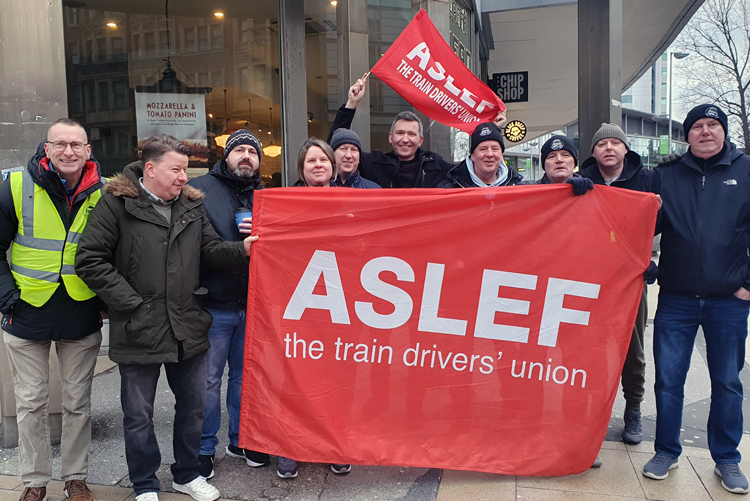CHELTENHAM, England — Some 5,000 workers marched behind union banners here Jan. 27 to protest against a new anti-union government law, the “Strikes (Minimum Service Levels) Act.” The law was passed to cripple the impact of union strike action.
Enacted after more than a million mainly public sector workers held strikes over the last two years, the new law aims to force striking workers in public sectors, like transport, education, health and the fire brigades, to ensure that 40% of their services are maintained. Refusal could lead to firings.
Spirits on the Trades Union Congress-backed march were boosted after the Associated Society of Locomotive Engineers and Firemen, the train drivers’ union, forced rail bosses to back off a threat to use the law.
In the face of one-day strike actions planned by ASLEF at a number of different rail companies from Jan. 29 to Feb. 5, one of the companies announced its intention to use the new law against the workers. The union responded by calling an additional five days of action.
“They backed off from their threat because of the union calling more action. It’s the way to stop these laws,” Gary Boyle, a train driver and union representative at Manchester Piccadilly train station, told the Militant on the picket line Jan. 31.
“We’ll keep striking until we get the pay rise we need without conditions.”
“Eleven of us came from our union branch, it was great to see all the different unions with workers from around the country there and all determined to stand up to these laws,” said Claudia Chianese, branch chair of the Manchester South branch of the Rail, Maritime and Transport Workers union.
Union contingents included those who have taken strike action over the last couple of years — postal workers, health care workers, teachers, civil servants as well as rail workers.
Others came to show they were prepared to use their unions to fight against the effects of continued inflation and attacks on workplace conditions. This included several dozen supermarket and warehouse workers, who are members of the Union of Shop, Distributive and Allied Workers.
A group of GMB-organized Amazon workers fighting for union rights also joined the march, as well as Unite-organized steelworkers from Port Talbot in Wales, who are fighting to oppose cuts in over 2,800 jobs.


